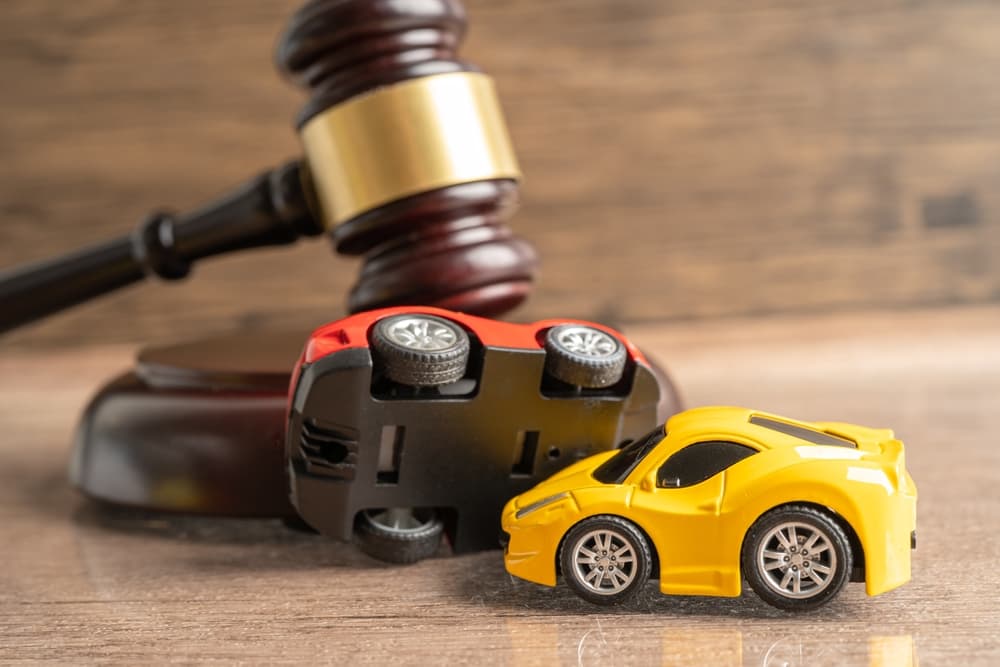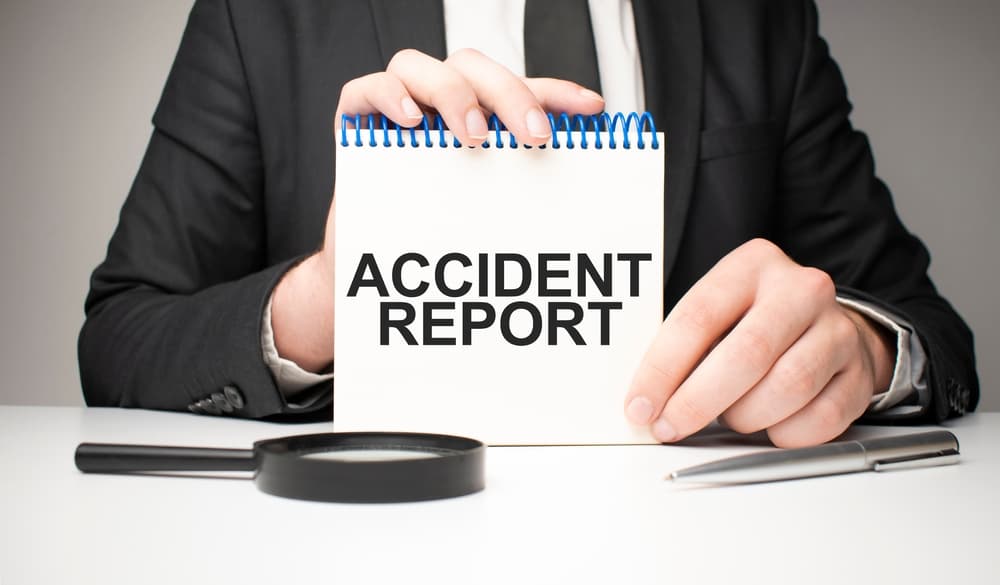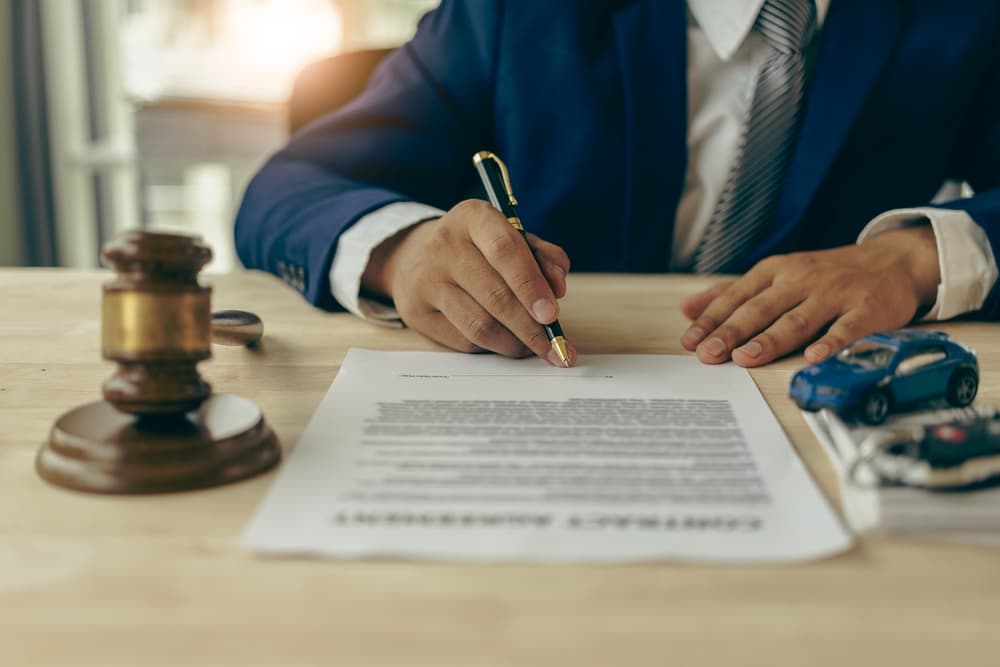Car accidents are a common occurrence. While the accident can cause overwhelming stress, so can the aftermath, especially when navigating it without a lawyer's help.
Many people do not understand what car accident attorneys do, so some are reluctant to hire one when needed. If this sounds like your situation, you might want to learn more about the role of a car accident lawyer in helping you obtain compensation.
A Lawyer Can Help Prove That the Other Driver Caused the Accident
After a car accident resulting from someone else's negligent conduct, you will generally need to prove that person's fault to get compensated for your damages. Most people do not realize how difficult it is to prove another person's negligence until they become the victim trying to obtain compensation.
Unless the police report clearly outlines the other driver's fault or, in the absence of the report, you can demonstrate the driver's negligence on your own; you may need a lawyer for this step.
Conduct an Investigation

One of the primary roles of a car accident attorney is to conduct a thorough investigation into the circumstances surrounding the accident. This involves collecting and analyzing various forms of evidence to build a legal case.
The attorney will typically start by reviewing the police report, which provides an official account of the accident and may include citations issued to the other driver.
Next, the attorney may visit the accident scene to gather additional information. This on-site investigation can reveal crucial details such as road conditions, traffic signals, and possible witness testimonies. Photographs and videos of the scene can create an unbiased visual representation of what occurred.
Additionally, the attorney will interview witnesses who were present at the scene. Witness statements can offer unbiased accounts of the accident, supporting your claim of the other driver's negligence. By piecing together all these elements, the attorney creates a comprehensive picture of the accident to present in court.
Proving the Elements of Negligence
To establish negligence, a car accident attorney must prove four key elements: duty of care, breach of duty, causation, and damages.
Demonstrating these elements is necessary to establish the other driver's legal responsibility for the accident.
- Duty of care. The attorney must establish that the other driver owed you a duty of care. This is a legal obligation to act in a manner that ensures the safety of others on the road. For instance, all drivers should adhere to traffic laws, maintain a safe speed, and remain attentive.
- Breach of duty. Once establishing the duty of care, the attorney must prove that the other driver breached this duty. This can involve showing that the driver was speeding, distracted, or driving under the influence during the accident. Any deviation from the expected standard of care can constitute a breach of duty.
- Causation. The attorney must then demonstrate that the breach of duty directly caused the accident. This involves linking the driver's negligent behavior to the collision and proving that it was the primary factor leading to your injuries and damages. Establishing a clear connection between the breach and the accident is crucial for a successful claim.
- Damages. Finally, the attorney must prove that you suffered actual damages from the accident. Providing documentation such as medical records, bills, and repair estimates can help substantiate your claim for damages.
Gather the Necessary Evidence
Gathering evidence is critical to building a strong case for proving negligence in a car accident. A skilled attorney knows precisely what evidence you need to build a compelling case and how to obtain it effectively.

Some of the pieces of evidence your lawyer may look for include:
- Accident reports. Police reports provide an official account of the accident, including details about the drivers, vehicles, and conditions during the crash. The attorney will obtain and review this report to identify any citations or observations that support your claim.
- Medical records. The attorney will gather your medical records to prove the extent of your injuries and link them to the accident. These documents can show the treatment you received, the severity of your injuries, and the ongoing medical care required.
- Witness statements. Witnesses who saw the accident can provide independent and unbiased perspectives. For instance, all drivers should adhere to traffic laws, maintain a safe speed, and remain attentive.
- Surveillance footage. In some cases, nearby businesses or traffic cameras may have captured the accident on video. The attorney will seek out and secure any available footage that can serve as compelling evidence of the other driver's negligence.
- Expert witness testimony. Expert witnesses (accident reconstruction specialists, medical professionals, and others) can help in complex cases. These professionals can analyze the evidence, recreate the accident scene, and provide opinions on how the accident occurred and who was at fault.
By systematically gathering and compiling all relevant evidence, the attorney builds a robust case that clearly demonstrates the other driver's negligence and its impact on your life.
A Car Accident Attorney Can Assess Your Losses After the Accident
Proving the other driver's negligence is just one of the steps toward getting compensation. However, if you truly want to get the full compensation you are entitled to and avoid settling for less than what your case is worth, you need to have a skilled attorney accurately assess your losses.
Anticipated Medical Expenses
Medical expenses are often the most immediate and obvious cost following a car accident. However, many people don't realize that these costs can extend far beyond the initial emergency treatment.
Anticipated medical expenses might include ongoing treatments, physical therapy, medications, specialized equipment, and future surgeries. The average cost of treatment for a disabling injury is in the hundreds of thousands of dollars.
A car accident attorney can gather all necessary documentation, from hospital bills to physician reports, ensuring your claim considers all potential medical expenses. They work with medical professionals to comprehensively estimate future healthcare needs and associated costs, safeguarding you from financial strain as you recover.
Anticipated Loss of Income
A serious car accident can reduce your ability to work temporarily or permanently.
Assessing anticipated loss of income involves calculating the time you have already missed from work and any future earnings you may lose due to your injuries. This can include lost income, diminished earning capacity, and even lost job opportunities if you cannot return to your previous occupation.
A car accident lawyer will work with vocational professionals and economists to estimate these losses accurately. They help ensure you receive adequate compensation for all lost income by clearly presenting your future earning potential.
Property Repair or Replacement Values

Car accidents often result in property damage in addition to personal injuries. Assessing property repair or replacement values involves determining the cost to repair or replace your vehicle and any other personal property damaged in the accident. This process can be complex, as insurance companies may attempt to minimize the payout.
A car accident attorney can assist by obtaining fair estimates from reputable auto repair shops and ensuring that the insurance company provides an equitable settlement. They can also advocate for compensation for any additional property lost or damaged, such as electronics, clothing, or other personal items.
Lasting Physical Disability or Disfigurement
Catastrophic accidents can lead to lasting physical disabilities or disfigurements that drastically alter your quality of life. These injuries often require ongoing medical care, adaptive equipment, and modifications to your home or vehicle. Beyond the tangible costs, lasting disabilities or disfigurements can also result in a significant emotional toll.
A car accident attorney can help seek compensation for these long-term impacts by working with medical professionals to document the full extent of your injuries and their implications on your daily life.
They can also work with specialists to calculate the financial impact of these permanent changes, ensuring that your compensation reflects the long-term nature of your needs.
Physical, Mental, and Pain and Suffering
The emotional and psychological effects of a car crash can be equally devastating. Victims may experience anxiety, depression, post-traumatic stress disorder (PTSD), and other mental health issues.
About 25 to 33 percent of car accident survivors deal with PTSD symptoms at least 30 days after the accident.
The pain and suffering can also impact your overall well-being and quality of life. Quantifying these non-economic damages can be challenging, as they do not have a direct monetary value.
However, a skilled car accident lawyer can help by gathering evidence such as medical records, psychological evaluations, and personal testimonies to build a compelling case for compensation. They will ensure that your pain and suffering, both physical and mental, are acknowledged and adequately compensated in your settlement.
A Car Accident Lawyer Will Communicate With the At-Fault Party's Insurance Company
After a car accident, informing the at-fault party's insurance company about the incident is crucial. However, communicating with insurance adjusters on your own can be tricky. They are trained to minimize payouts and might use your statements against you.
A car accident attorney buffers communications strategically, ensuring you avoid saying anything detrimental to your case.
A demand letter is a document you send to the insurance company to outline the details of the accident, the injuries you have suffered, and the compensation you seek. Your attorney will meticulously craft this letter to present a compelling argument backed by evidence, which serves as a foundation for negotiations.
Insurance companies often resort to various tactics to reduce their liability, such as:
- Delaying the process in the hopes that you'll accept a lower settlement out of frustration.
- Denying liability by arguing that their policyholder was not at fault.
- Disputing the severity of injuries by claiming your injuries are not as severe as reported.
A seasoned car accident lawyer is well-versed in these tactics and has the negotiation skills to counter them effectively. They will engage in back-and-forth discussions, presenting evidence and arguments to substantiate your claim and push for a fair settlement.
A Car Accident Attorney Will Represent Your Case in Court

If you suffered an injury in a car accident and decide to take your case to court, you must be aware of the statute of limitations for personal injury lawsuits. The laws on statute of limitations vary from one state to another.
In Florida, for example, injured victims have two years from the injury to initiate legal action. If you are considering filing a lawsuit, you need an attorney to represent you in court. Your lawyer will handle all aspects of litigation, including:
Preparing Legal Documents
Your lawyer will work meticulously to prepare all necessary legal documents. This includes:
- Initiating a lawsuit by filing a complaint in court.
- Creating documents that outline your claims and other court-required information.
- Filing motions for various purposes, such as requesting evidence or dismissing certain claims.
By handling these documents, your attorney ensures your case proceeds smoothly through the legal system.
Keeping You Informed
Legal proceedings can be complicated and confusing. A good attorney keeps you informed about the progress of your case and helps you understand each step of the process.
This includes:
- Regularly updating you on the status of your case.
- Breaking down complex legal jargon into understandable language.
- Offering guidance on critical decisions, such as accepting a settlement offer or proceeding to trial.
If your lawyer fails to inform you, you cannot handle your case in a manner that will most likely lead to a successful outcome.
Handling Court Filings
Court filings are a crucial part of any legal case. Your attorney will file all documents correctly and on time.
This includes:
- Filing evidence and supporting documents with the court.
- Adhering to strict court deadlines to avoid delays or dismissals.
- Ensuring that all filings comply with court rules and procedures.
Sometimes, a seemingly minor error with court documentation can derail the entire case, so you shouldn't underestimate the importance of keeping your documents organized.
Cross-Examining Opposing Witnesses
Cross-examining witnesses is a critical skill that people with no legal background often lack during a trial.
An experienced car accident attorney knows how to:
- Question the reliability and truthfulness of opposing witnesses.
- Highlight contradictions in their testimony.
- Elicit information that supports your case and weakens the opposition's arguments.
At the same time, your lawyer will also ensure that the testimony of your witnesses is compelling enough to influence the judge and jury.
Representing Your Case in the Strongest Terms at Trial
Regarding trial, your attorney's representation can make or break your case.
They will:
- Introduce evidence and professional testimonies that bolster your claims.
- Deliver compelling statements that frame your case effectively.
- Articulate your position clearly and persuasively to the judge and jury.
You need an experienced personal injury attorney to represent your interests in the courtroom. It all begins with a free consultation, so start the process today.
We proudly serve Hillsborough County, Pinellas County, Pasco County, Polk County, and its surrounding areas in Florida:
Apex Law Firm - Tampa Office
412 E Madison St Suite 1206, Tampa, FL 33602
(813) 444-5212


